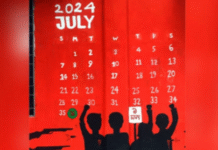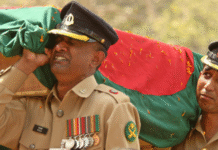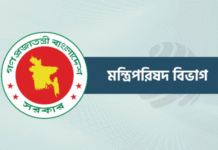Welcome, New Stewards of Dhaka
Wishing the capital’s mayors every success

As citizens of Dhaka vote for Dhaka’s twin city corporation elections today, this is a good time to take stock of their significance. We underestimate the importance of these elections at our peril.
It may well be true that city corporation elections aren’t exciting. Garbage collection, traffic jams and power outages aren’t the stuff of breathtaking news. But civic elections are vital for a nation’s democratic sustenance.
They may lack the soaring rhetoric of lofty national aspirations, the broad historical sweep often found in the stump pitches of national candidates. Pundits, brows furrowed, don’t pontificate upon the great significance of the lurch of the voting public this way or the other in city polls.
Yet city corporation elections are important for a simple reason: this is where the rubber hits the ground.
The very reasons that make these elections so boring are the ones that underlie its significance. City corporation elections, after all, are about governance in its purest form. Voters don’t give a toss about bitter polemical debates. What they care about is getting things done: they want pothole-free paved roads, uninterrupted power supply, regular garbage collection and public safety. None of this, thank goodness, lends itself to partisan demagoguery.
Then there is the lopsided significance of Dhaka. Everything of political significance in Bangladesh happens in Dhaka, the city which is the political, cultural, intellectual and financial heart of the nation. A successful mayor, backed by a solid track record, not only has an excellent launching pad for a bigger, national career. He has the potential to provide the nation something in extraordinarily short supply: a politician who can get things done.
Ensuring services is only part of the story. The real secret of effective civic governance is the management of expectations. This has to be done while balancing the needs and demands of a wide variety of constituencies, sometimes at odds with each other.
Some of the greatest leaders in the history of the Bengalis honed their political skills in city government. Sher-e-Bangla AK Fazlul Huq, Netaji Subhas Chandra Bose, Hussain Shaheed Suhrawardy and Deshbandhu Chittaranjan Das—all served stints as mayor of Kolkata.
It is no accident that during the convulsive years of pre-Partition subcontinental politics, these were among the very few leaders best equipped to tackle the explosive Hindu-Muslim tensions that tore the subcontinent apart. They did not ultimately succeed; but most historians concede that these were the leaders most capable of reconciling the political differences between the two communities.
That’s one of the most valuable lessons of city government. Getting elected is just the beginning. You want to get elected to a new term? You better perform.
City politicians tend to be a result-oriented lot. They cut deals, cajole, convince and reconcile recalcitrant interest groups, solve problems, manage crises.
One of the most unfortunate facts for Bangladesh is that for long periods of its history, the region has been deprived of the benefits of a democratically functioning city government. Although the Dhaka Municipality was established in 1864, the first elected mayor by popular vote, Mohammad Hanif, took office in 1994. Until then, all mayors were appointed by the government.
The city administration became Dhaka Municipality Corporation in 1976. In 1990, it became Dhaka City Corporation. In 2011, the Awami League government dissolved the Dhaka City Corporation and split it into two corporations, North and South, with the southern wing holding more territory than the north.
Annisul Huq, who was elected mayor of the Dhaka North City Corporation in 2015, gave Bangladeshis a brilliant glimpse of the wondrous possibilities of a city government that works. Before his unexpected and heartbreaking demise, his dynamic leadership led to clearing of illegally occupied parking lots near bus stops in Mohammadpur, Kalyanpur and Mohakhali, cleared a decades-long illegal truck stop infested by drug peddlers. (Credit is definitely due to the national government, which gave Annisul carte blanche.)
Where would have Annisul gone in the future? We have no way of knowing now, but if history is any guide, he could well have followed the steps of illustrious Bengali leaders like Fazlul Huq, Suhrawardy or Bose.
What is indubitable is that dynamic, can-do leaders provide vital new energy into national politics with their first-hand skills of efficient governance. That, in a nutshell, is the promise of the elections that will bring us two mayors of the city we so dearly love.
However, there are a few conditions to be fulfilled before that promise becomes a reality.
Elections have to be genuinely free, fair and robustly contested. Institutions have to be clean and empowered to do their job without political let or hindrance. The greater powers that be—including the national government—need to be willing to get out of the way when city governments take stern measures to fix the city ills—it will invariably have to step on some pretty influential toes.
Will these conditions be fulfilled?
Given our recent history, it’s not very easy to be confident. One of the unfortunate facts of postcolonial nations all over the world is that while the outward appearances of democratic institutions have survived, in many cases they have become hollow shells which have succumbed more and more to autocratic tendencies.
Time will tell as the newly elected mayors take office. They face an exciting future as they realise that getting elected mayor is not an end in itself, but the beginning of a challenging political journey.
Here’s to wishing them success!
Ashfaque Swapan is a contributing editor for Siliconeer, a digital daily for South Asians in the United States.









